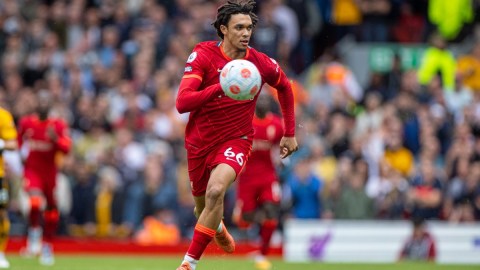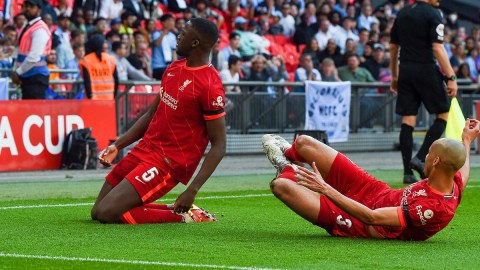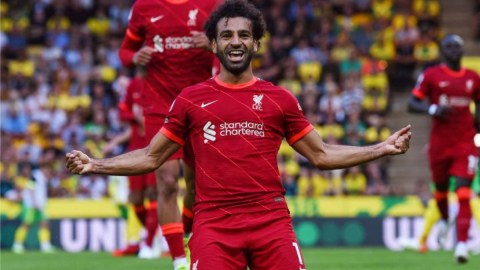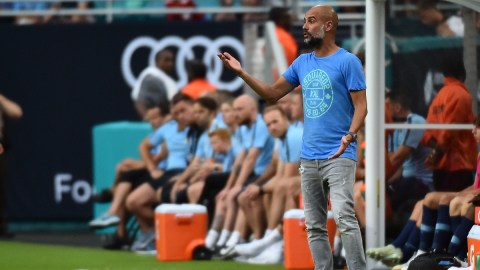In late February, Roberto Mancini proved that he possesses a mentality fit for an Italian prince.
Nearly five months and one Premier League title later, Mancini looks set to live like one for years to come.
On Monday, Mancini signed a new contract with Manchester City that will make him the highest-paid manager in the Premier League. The newly minted five-year deal pays him an annual salary of £7.5 million ($11.6 million), surpassing the £6.3 million ($9.8 million) Manchester United pays Sir Alex Ferguson and the £7.1 million ($11 million) Arsene Wenger earns at Arsenal.
Mancini’s original contract was set to expire at the end of the 2012-13 season. At one point last season, it was unclear if he would remain at the club long enough to see it through. City stormed through the first half of the league campaign, and it looked like it might wrap up the title by the coming of spring. But a dip in form starting in late February saw United overtake its crosstown rival.
That drop in performance coincided with the return of rebel striker Carlos Tevez and Mario Balotelli‘s constant breaches of the club’s disciplinary code. At the time, Mancini was slaughtered in the press for his handling of both situations. But behind the scenes, he was making decisions that would ultimately help end City’s 44-year wait for a league championship.
“How could any self-respecting manager welcome a player who had abandoned the team back into the dressing room?” many asked of Tevez. “Who in their right mind would accept a player who constantly marched to his own beat?” critics wondered about Mancini’s handling of Balotelli.
But Mancini knew his only chance at keeping one of the most desirable jobs in club soccer rested on winning the league. So he channeled the great Italian philosopher and diplomat, Niccolo Machiavelli, and applied three famous lessons to his situation at City.
The first is that the ends justify the means. Mancini needed to win the league in order to maintain the luster on his managerial star. But he needed help at striker to do so. Edin Dzeko was out of sorts and Sergio Aguero was breaking down physically. He decided to bring Tevez back into the fold in February because the former City captain was a world-class striker capable of making a difference.
That move, combined with his support for Balotelli, didn’t win Mancini any popularity contests at City. But it showed his team that he was in a single-minded pursuit of glory. Players would either join him or find themselves labeled as “flops, bottlers, choke-artists” and the like. That “win at all costs” mindset can be unsettling or downright scary for some. The Italian tactician (Mancini) wasn’t too concerned with having his players love him. After all, Machiavelli taught him that it is better to be feared than loved.
It took a few weeks for the “new Mancini” effect to take hold of the squad. After City lost to Arsenal in early April, it trailed United by five points with six games to play. Many left the club’s title-bid for dead, but Mancini went all in and proved that perception is reality. He restored Tevez to the starting 11, and City went on a tear. It won its final six games, including a memorable 1-0 win over United in what was billed as the most important game in Premier League history.
City’s photo-finish win in the Premier League merely capped one of the finest managerial performances in recent memory. Mancini’s big and controversial calls turned the tide of the season in his team’s favor, and club owner Sheikh Mansour and chairman Khaldoon al-Mubarak had already decided to stick with him by the time the final day of the season came along.
Premier League glory gave Mancini significant leverage in negotiations. In late May, The Mail reported that City started negotiations by offering him a three-year contract worth £5 million ($7.8 million) per year. The deal Mancini ended up signing gives him two more years and £2.5 million more than City first offered.
Inter Milan fired Mancini in 2008. Now he trails only Jose Mourinho — who makes £11million-a-year ($17.1 million) at Real Madrid — on the managerial rich list. It’s not a bad outcome for the forward thinking Italian. By simply following the well-worn path of Italian history, Mancini won the right to cruise the streets of gold and lead the City convoy into a bright, new era.
Have a question for Marcus Kwesi O’Mard? Send it to him via Twitter at @NESNsoccer, NESN Soccer’s Facebook page or send it here. He will pick a few questions to answer every week for his mailbag.



